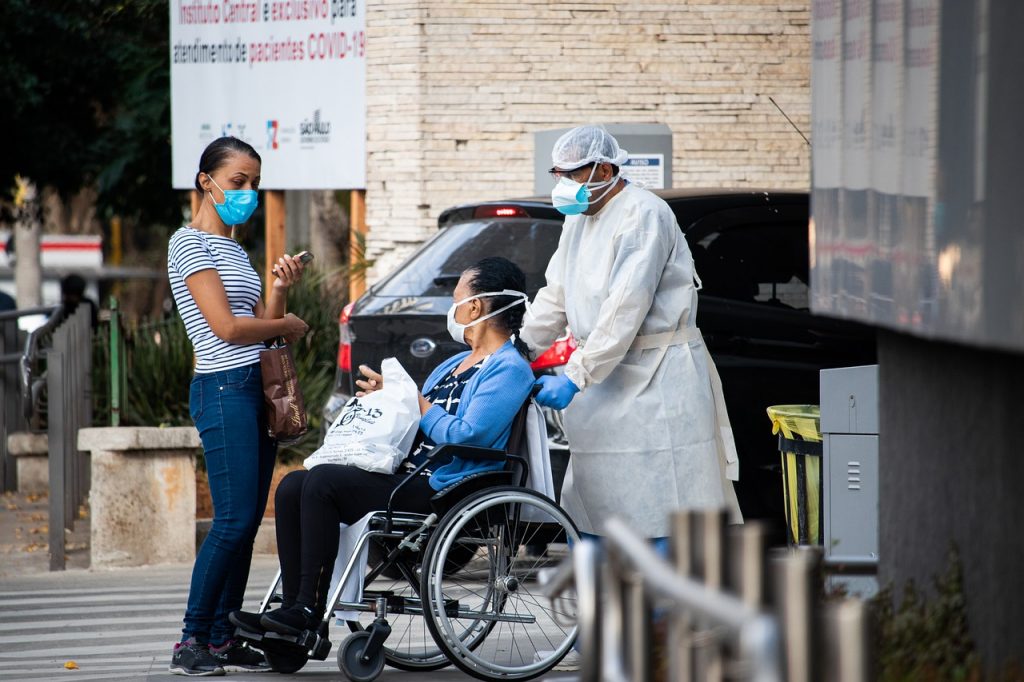Nurses face huge challenges when working in the front line against Covid-19 pandemic. Affected by the pandemic, the risk of nurse burnout increases. From hospital nurses 63 % reported burnout before Covid-19 outbreak (KRONOS 2017; Kumar 2019). As the number of Covid-19 infections increase and lack of supplies decrease, the nurses are under greater stress than ever. It makes the situations of nurse burnout worse.

The nurses have high risk to encounter job burnout because of the character of nursing job. Risk factors for nurse burnout in this epidemic may include: heavy workload, personality factors, shift working, moral distress, compassion fatigue, lack of supplies, poor working environment and bad working atmosphere.
How to deal with the psychological pressure of nurses during the pandemic?
Self-care
Nurses can carry out active self-care from three aspects: physical, psychological and social. Nurses can also seek professional psychological support. The nurses’ associations and health care parties have issued guidelines to support coping at work.
Firstly, from a physiological perspective, adequate hours of sleep are important. Nurses should be aware of warning signals that related to tiredness and burnout. Cooperation with workmates to make sure that the shift work running well. Taking a rest after high-intensity work and always taking time to eat and drink. (APNA 2020.)
Secondly, from a psychology perspective, clarifying the boundaries of work and family life is important. Nurses need to enhance the sense of borders to avoid excessive attention to Covid-19 pandemics and involvement in their emotions during leisure time. Some simple daily activities can help the nurses return from the stressful work to the daily life, such as reading, taking a walk in the forest or an exercise. The nurses could try to cultivate the ability to pay attention to positive affairs, such as yoga. (APNA 2020; Tchiki 2018.)
Thirdly, form the social perspective, nurses should enhance the communication with others and keep contacting with social support system. During work time, colleagues could give and accept positive encouragement and support from each other. Even just five minutes of sharing and communication can also relieve some of the pressure. (Tchiki 2018.)
Relaxation
Mind-fulness is effective a good way to relax oneself. Nurses can do it when they are walking–feel the feeling of your feet touching the ground, feel the breeze blowing across the face, observe the trees and sky on the road and so on. Try to recall some events that make you feel happy and supportive and give yourself strength. If you feel that you are out of control, you first need to calm down your mood, and then try to relax yourself with relaxing audio or call someone to reflection. (NHS 2018)
In additional to individual intervention, the organization should play an important role in the prevention of burnout among nurses during the pandemic. The combination of individual and organizational interventions is recommended to prevent the burnout. In order to avoiding bad situation, the healthcare organizations and leaders should prepare well ahead for to protect nurses, such as setting emergency procedures, getting timely feedback from nurses at work, reasonable rest arrangements, effective rewards, good occupational protection and so on. By the application of these intervention, the burnout among nurse can decrease.
Authors
Lizhen Fu is a nursing student of LAB University of Applied Sciences. She has written the thesis Prevention of burnout among nurses.
Lecturer Sari Lappalainen in LAB University of Applied Sciences.
References
APNA 2020. Managing Stress & Self-Care During COID-19: Information for Nurses. [Accessed 19.04.2020]. Available at: https://www.apna.org/m/pages.cfm?pageID=6685
KRONOS. 2017. Kronos Survey Finds That Nurses Love What They Do Though Fatigues is a Pervasive Problem. [Accessed 21.04.2020]. Available at: https://www.kronos.com/about-us/newsroom/kronos-survey-finds-nurses-love-what-they-do-though-fatigue-pervasive-problem
Kumar J. 2019. WHO Recognizes Burnout as ‘Occupational Phenomenen’. [Accessed 21.04.2020]. Available at: https://www.psqh.com/news/who-recognizes-burnout-as-occupational-phenomenon/
NHS. 2018. Mindfulness. [Accessed 03.04.2020]. Available at: https://www.nhs.uk/conditions/stress-anxiety-depression/mindfulness/
Tchiki D.2018. Self-Care: 12 Ways to Take Better Care of Yourself. [Accessed 03.04.2020]. Available at: https://www.psychologytoday.com/us/blog/click-here-happiness/201812/self-care-12-ways-take-better-care-yourself
Pictures
Picture 1. Alefukugava. 2020. Pixabay. Available at: https://pixabay.com/fi/photos/corona-covid19-karanteeni-pandemian-5123445/




